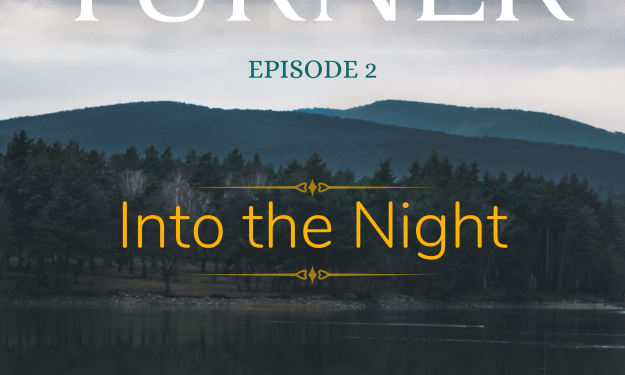
On a bright morning in May 1948, Clyde Hawkins walked out of the Indiana State Penitentiary a free man. “Never again,” he said to himself as he glanced over his shoulder at the brick behemoth. Behind him was a twisted maze of concrete and steel, of chains and barbed wire. What lay before him was a world of endless possibilities.
Ten years was a long time to be locked up—the maximum sentence for a seventeen-year-old convicted of armed robbery. He could have gotten off with a slap on the wrist had Judge Whiteside not taken a “liking” to him. The old man hated Clyde from the moment he stepped foot inside his courtroom. Perhaps it was his long hair and braggadocios smile that had rubbed the old man the wrong way, but whatever it was had sealed his fate. Even the court appointed attorney knew right off the kid from Terre Haute was doomed.
“That oughta wipe the smirk off his face,” said the judge happily as he watched Clyde being led away in handcuffs. He had him sent north to Michigan City, where he was to serve his entire sentence in the Indiana State Prison, a notorious place that had housed the likes of John Dillinger and D.C. Stephenson.
But despite his age and wanton disregard for authority, Clyde took it like a man. After all, there was no denying what he’d done—robbing a young mother at gunpoint on Christmas Eve while her child slept in the next room—an unconscionable crime. Had he been a year older, his sentence would have been a quarter century, so he considered himself lucky.
With nothing more than the clothes on his back and the shoes on his feet, Clyde headed out into a brave new world. On the one hand, he was a free man, but now he faced the harsh reality of an unforgiving world where everything came at a price. Fortunately, the necessities of life were provided by the state at a halfway house on the north side of town. It was far from glamorous, but it meant a roof over his head and food in his stomach.
He caught the bus outside the prison gate and let it take him as far as 7th Street, then got out and went the rest of the way on foot. A look at the address on his papers told him he was in the right spot. The house was run by a brute named Bill Cline. A former prison guard, Bill stood six-four, weighed two-sixty, was solid as a rock, and had a reputation for being a real hard ass. Clyde had heard stories about Bill on this inside, so he knew he had to walk a straight line, or he’d find himself back on the block.
Clyde stood at attention in front of Bill’s desk while he reviewed his papers. It was standard fare, prison issued, and signed by the warden, so there wasn’t much to scrutinize. When he was satisfied everything was in order, Bill showed Clyde to his room. It was on the ground floor, down a little hallway at the back of the building. Inside the dimly lit space sat a bed and a nightstand with a lamp. There was a small window on the far side of the room, beside which sat a writing desk and chair, and there was a separate bathroom that had a tub and a sink, and a little mirror that was split down the middle.
“Dinner’s at 6:30 in the dining room,” Bill said in a harsh voice. “Eat or starve, it’s all the same to me,” he said, then backed out of the room and slammed the door.
Clyde turned and surveyed the room. It wasn’t the Drake Hotel, but it sure beat the hell out of the six by eight cell he’d called home for the last decade. The first thing he did was make the bed. With that out of the way, he sat down at the desk and pulled out the center drawer. Inside was a worn-out black notebook and what remained of a pencil. He took a moment and thumbed through the pages. Everyone who had stayed in the room before him had made an entry. There must have been thirty of them, dating back to before the war.
He read for a while, but quickly lost interest. Then, he drew a bath and sat in the scalding water until all his troubles melted away. It was the first moment of peace he’d had in a long time, and he relished every second. When the transformation from man to prune was complete, he toweled off and stood in front of the mirror. Staring back at him was a man he hardly recognized. At only twenty-seven, he had the face of someone much older. A hard life can do that. His hair, which had at one time been long and unkept, was shaved to the scalp, and there was a scar on the left side of his face where a razor had cut him during the riot of ‘42. Even his eyes, once crystal blue and full of life, were now cold, their color a steely gray.
At dinner, he sat around a table with a half-dozen others who were in a similar predicament. In between bites, he watched as they devoured their steaks, cutting and gnawing at them like wild animals. People never change, he thought as he quietly observed the feeding frenzy. He’d heard his father say those words a thousand times. We are what we are. Even though they were free men, Clyde knew most of them would end up back behind bars. That’s the way life was.
Before bed, Clyde jotted down a few thoughts in the notebook, then did something he hadn’t done in a very long time—he got down on his knees and asked for forgiveness. If there was some greater power out there in the universe, he wanted him or her or it to know he had changed. He was remorseful for what he had done and had paid his debt to society. The only thing he longed for now was a chance to prove himself, to show everyone else he had changed.
The next morning, Clyde woke with a sense of purpose. His conscience was finally clear, and he had made his peace with the universe. With the few dollars he had in his pocket, he found the clothing store on Wabash and bought a shirt and a pair of slacks, then spent the rest of the day in search of a job. By sundown he’d secured work bussing tables at a local diner. The old man who owned the place had done a stint in Leavenworth, so he cut Clyde a break.
Weeks went by and as Clyde settled into his new routine, he longed more and more for a change of scenery. His dream was to live at the beach, some place warm like San Diego or Miami. He’d read about them in school when he was a kid and had always been fascinated by the ocean. But at the rate he was going, it would take years before he’d have enough money to move to a place like that. What he needed was a miracle.
When he wasn’t working, he spent most of his time at the Washington Park observation tower, where seventy feet up he enjoyed the best view in the entire state of Indiana. Endless blue skies overlook miles and miles of open water, golden sand, and emerald green hills. He’d stay up there for hours and look out at the deep blue waters of Lake Michigan and pretend it was the Atlantic. Often, he’d write in the notebook or just stare at the waves as they rolled in and crashed on the beach. It was peaceful up there, high above the world, where only the sound of the wind could be heard. Heaven.
One afternoon, while he stood on the deck of the tower, he observed a man sitting on a park bench at the foot of the Soldiers and Sailors Monument. He was middle-aged, wore a dark hat and glasses, and appeared to be reading a newspaper. Beside him sat a black briefcase. He watched the man for a couple of minutes, then lost interest, and went back to enjoying the waves. A few minutes later, he looked back, but the man was gone. The briefcase, however, was there, only now it was sitting under the bench.
Curious, he thought as he scanned the area.
A minute passed…five…ten, and when he was certain the man wasn’t coming back, Clyde descended the steps of the tower and set off in the monument's direction. From a distance he eyed the briefcase, unsure of what to do next. A quick stroll of the park turned up no sign of the man in the dark hat, so he grabbed the bag and went to a nearby picnic table, where he peeked inside.
“Holy shit,” he said aloud, as he stared at stacks of twenty-dollar bills. There must be twenty grand in here, he thought as he rifled through the money. He couldn’t believe his fortune; it was as if a prayer had been answered. Suddenly, a war raged inside him. That was enough money to get him to the coast, to live like a king. It was everything he ever wanted. But it wasn’t his money, not really, not in the eyes of the law. This was the moment he had prayed for, the one where he could prove to everyone, including his father, that change was possible.
With the briefcase beneath his arm, he hurried out of the park, crossed the street, and headed south toward the police station. This was his chance to redeem himself. When he got there, he sat the bag on the counter, told the officer who he was, what he had found, and that not a single dollar was missing.
The officer thanked him for his honesty and took his address in case there was a reward.
Clyde left the police station feeling better than he had since he was a teenager. The opportunity he had been hoping for had come, and for once in his life he was sure he had done the right thing.
After a good night’s sleep, Clyde woke to find the morning paper beneath his door. As he sat on the edge of the bed, he unfolded the paper and began reading. The morning headline read:
RANSOM GOES AWRY,
BOY LOSES LIFE.
PROMINENT FAMILY SEEKS JUSTICE
Seconds passed, and as the realization of what he had done began to sink in, Clyde hung his head in defeat. Just then, heavy footsteps could be heard in the hall outside his room.
As he was led away in handcuffs, the cops found the notebook on the desk where Clyde had been writing the night before. There on the page, written in pencil, were these words:
Today, I, Clyde Owen Hawkins, did a good and honest thing. You don’t know how hard it was for me not to take the money and run, but I didn’t. I made a promise to myself that I would never go back to that life, and I intend to keep it. I guess people really can change after all. Now, I know there’s nothing that can stop me from making it to the ocean. Nothing.
END





Comments
There are no comments for this story
Be the first to respond and start the conversation.